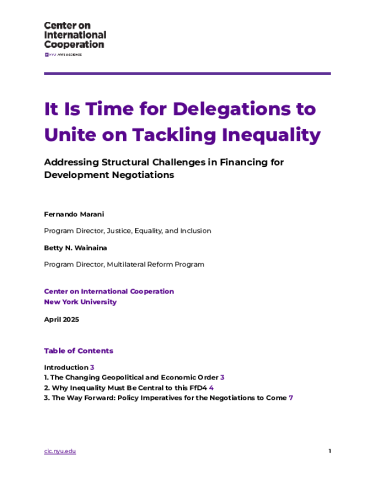As the international community prepares for the upcoming Fourth Financing for Development (FfD4) conference in Sevilla, Spain, the issue of inequality continues to stand out. Since 2020, the global economic landscape has undergone profound shifts, marked by the growth of extreme wealth concentration, heightened geopolitical competition, and a crisis of multilateralism. In this context, inequality has not merely become a social concern but a structural impediment to sustainable development and global economic stability.
Extreme wealth inequality is accelerating at an unprecedented rate. In just the past year, billionaires’ wealth grew by USD 1 trillion—three times faster than in previous years. That did not happen by accident; it is the outcome of policy choices that have systematically favored capital accumulation over equitable growth. The colonial legacy has continued as USD 30 million is extracted per hour from the Global South to the Global North, further entrenching economic disparities between countries.
As a multifaceted issue that ranges from material inequalities at the domestic level to the unequal distribution of decision-making power in multilateral organizations, inequality shapes the very foundations of the global economy. Addressing these disparities is therefore not just a matter of fairness but a prerequisite for effective and inclusive solutions in any framework for Financing for Development.
